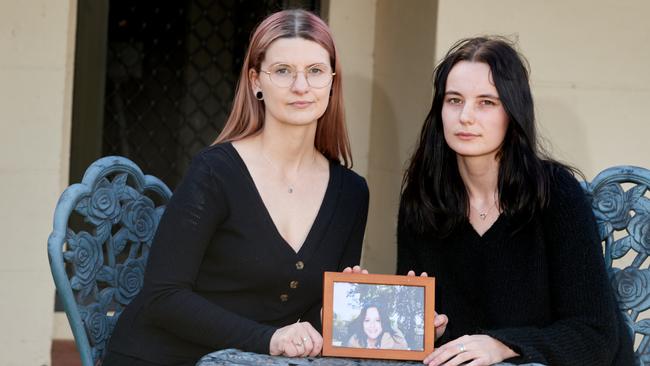Cody James Edwards sentenced to 11 years for 2022 manslaughter of mother-of-three Synamin Bell
The man who brutally bashed a mother to death may be out of jail in six years because of a legal “loophole”, devastating her family and forcing the government to act.
Police & Courts
Don't miss out on the headlines from Police & Courts. Followed categories will be added to My News.
The man who savagely beat a Millicent mother-of-three to death – irrevocably changing the lives of her family, friends and young children – has been jailed for 11 years
But the brutal death of 26-year-old Synamin Bell is set to change the law to close a “loophole” that allows drugged killers to escape heavier penalties.
Cody James Edwards, 27, was sentenced for the 2022 manslaughter of Ms Bell, whom he brutally killed in the bedroom of her Millicent home on the evening of March 12.
He was given a non-parole period of eight years and ten months, with the sentence backdated to March 2022 when he was first taken into custody. He will be eligible for parole in January 2031.

The packed courtroom erupted into murmurs and cries of anger and distress when Justice Adam Kimber announced the 11-year sentence – and broke out again when the non-parole period was announced.
Numerous members of Ms Bell’s family left the courtroom before sentencing was finished.
Speaking to the media outside the court, Ms Bell’s family and friends said the sentence was a “joke”.
“(The trial) barely felt like it was about Synamin – it was made all about Cody, his drug use and what he’d gone through in life,” Ms Bell’s younger sister, Shenta Bell said.
“She was a person, she wasn’t just a mum – she was an amazing mum but that wasn’t the only thing special about her – she deserved justice and she didn’t get it.”

“Her kids will won’t even be adults when he gets out – it’s going to be hard no matter their age but imagine being a teenager and your mum’s killer is let out of jail,” Ms Bell’s close friend Kimmi Smith said.
The court heard Edwards killed Ms Bell in the master-bedroom of her Millicent home after the pair consumed the psychedelic drug DOI and he experienced a paranoid psychosis – which caused him to believe Ms Bell intended to kill him, leading him to act in “excessive self-defence”.


Edwards’ lawyer, Steven Millsteed KC, said a physical struggle between the pair led to Edwards striking Ms Bell over the head repeatedly with a dumbbell.
“In Mr Edwards own words, ‘he just kept hitting her’,” Mr Millsteed said.
The court heard Ms Bell was left with more than 50 injuries to her head and body – including five stab wounds inflicted post-mortem.
Edwards pleaded not guilty to Ms Bell’s murder, but a week into his trial, he pleaded guilty to the lesser charge of manslaughter – which does not carry a minimum 20-year sentence like murder.
Fearing a “slap on the wrist”, Ms Bell’s friends and family launched a petition calling for reforms to laws relating to crimes committed by people under the influence of self-induced intoxication.

Shen Bell said Friday’s sentence was what the petition fought to change.
“It’s not what we feared, it’s what we expected and that’s the sad part really,” she said.
“It’s basically telling the community a man can take drugs, he can murder a woman and he can get off with a slap on the wrist,” friend Zoe Widdison added.
“He didn’t just take drugs, he took a life, (Synamin’s) gone,” Ms Smith said.

After the sentence was handed down, Attorney-General Kyam Maher said he would investigate law reforms so the partial defence of excessive self-defence would no longer be available to individuals who killed someone as a result of delusions experienced because of self-induced intoxication.
“Synamin Bell’s family not only lost a loved one, but they also have to live with the trauma of the fact that Ms Bell’s killer was able to plead guilty to a lesser charge because of a loophole in our laws around excessive self-defence due to self-induced intoxication,” Ms Maher said
“While cases like this are exceedingly rare, the government recognises that action must be taken.
“The government has been working on draft legislation to remedy this.”





